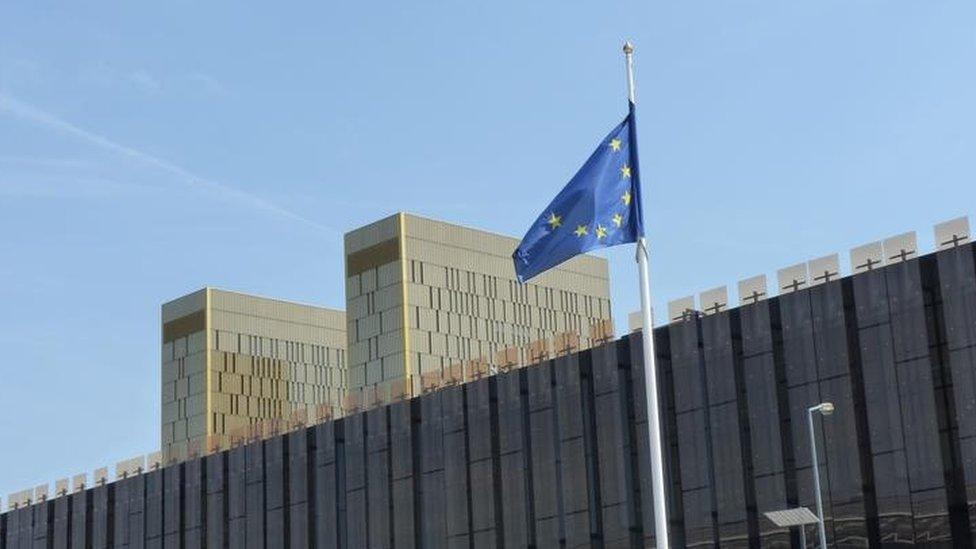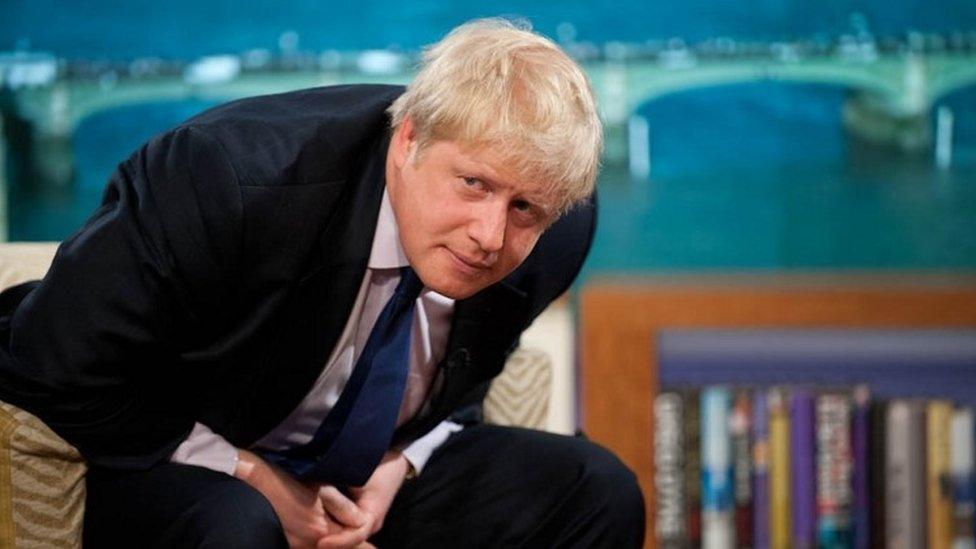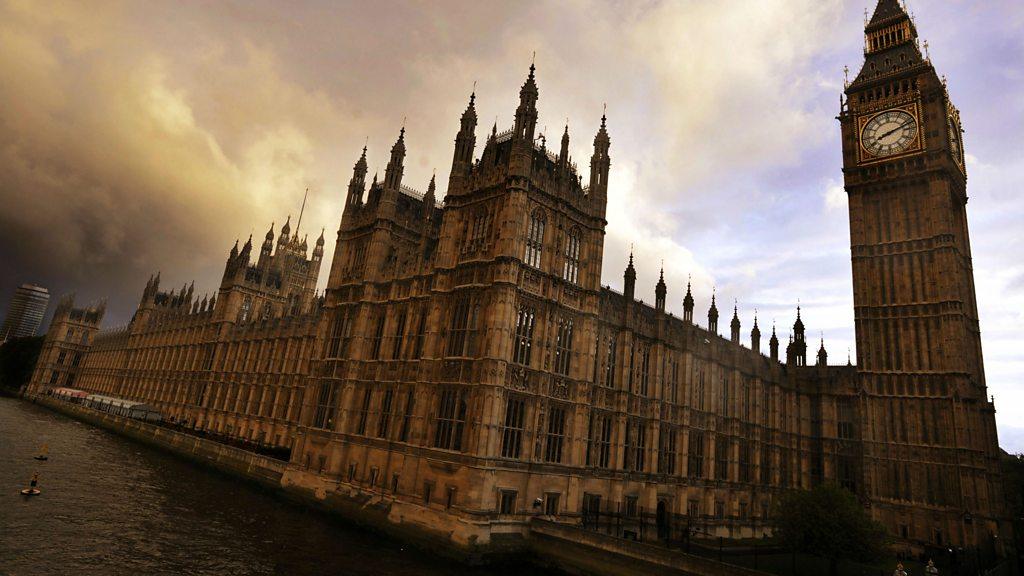Boris Johnson's wife enters EU debate with call to curb EU laws
- Published

Ms Wheeler argues the European Court of Justice has strayed into areas such as asylum, immigration and security
Marina Wheeler, who is married to Boris Johnson, has entered the debate about the UK's future in the EU, urging the government to assert its opposition to the "growing reach" of EU laws.
The barrister said draft reforms to the UK's EU membership might "do the job politically" but would do little to curb the "muscle-flexing" of EU Courts.
Without action, a "new generation of EU rights would bed down", she argued
Mr Johnson is under pressure to say whether he will back EU exit or not.
The Mayor of London and Conservative MP has said he will wait until the final text of the proposed changes to the UK's membership, brokered by European Council president Donald Tusk, is agreed before deciding which way to campaign in a future referendum.
He has said David Cameron is making the "best of a bad job" in his negotiations and pressed the prime minister to set out how any agreement will re-assert the UK's national sovereignty and guarantee the primacy of Parliament and British courts, amid speculation a law could be passed to put this beyond doubt.
'Legal certainty'
In an article for a human rights blog, external, Ms Wheeler - who recently became a QC - said the draft package of reforms negotiated by Mr Cameron, including enhanced powers for national Parliaments to group together to block EU legislation, "raised more questions than they answered".
"The reach of the Court of Justice of the European Union has extended to the point where the status quo is untenable," she wrote.

Mr Johnson has left both sides in the EU debate wondering if he will support their cause
"Aside from eroding national sovereignty, which it does, the current situation also undermines legal certainty, which in turn undermines good governance. To limit the still-growing reach of EU law, it is not enough to use "red cards" to stem the flow of EU legislation.
"Reform is needed to address the EU legal order, in particular the jurisdictional muscle-flexing of the Court in Luxembourg. The Tusk proposals do not do this. In fact they duck the issue entirely, leaving the way clear for a whole new generation of EU right to bed down."
A string of recent legal rulings, she argued, demonstrated that the Charter of Fundamental Rights, which was given legal force by the 2007 EU Lisbon Treaty was being used to "fashion new rights" rather than merely reaffirm those enshrined in the European Conventions of Human Rights.
She said an opt-out negotiated by the last Labour government, designed to ensure the Charter was not directly enforceable in the UK, was now "effectively dead" and it might not now be "practicable or legally coherent" for the UK to try and revive it.
'Last word'
Instead, given the concerns of certain other member states about the territorial reach of European courts, she said there was an opportunity for the UK to press for the EU's entire legal architecture to be reviewed.
"We should state our position afresh," she wrote. "The Charter either is, or should be, a set of principles that may guide the enactment of new EU legislation...but does not create any new rights directly enforceable by the courts in the member states or EU.
"Here is a chance to restore a measure of constitutional coherence, let us not pass it by."
The European Court of Justice was set up in the 1950s to ensure EU law is interpreted and applied evenly in every EU country but many Tory MPs believe it has extended its jurisdiction into areas which should be the preserve of national law and its judicial powers should be rolled back.
But, speaking on Tuesday, former attorney general Dominic Grieve said the Luxembourg court had primacy in this area and it was "difficult to see how any piece of legislation can alter that without us being in breach of the treaties".
"The treaty of accession, and our own legislation, makes quite clear that it is the Court in Luxembourg which has the last word," he said.
- Published10 February 2016
- Published9 February 2016
